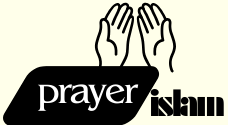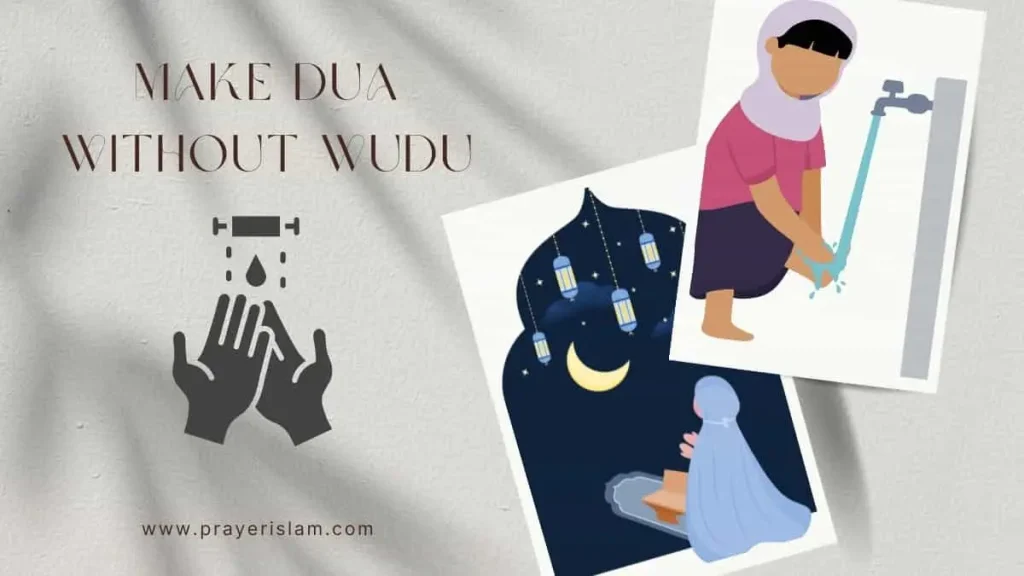Purity is human nature. Impurity, and filth make the body sick. Everyone loves to be pure. However, the body becomes impure in many ways due to the circumstances while moving. Bathing is done to get rid of some impurities. Sometimes it is done by ablution. So can you make dua without wudu? It’s good to know.
Allah Ta’ala says in the Holy Qur’an, O you who believe when you want to stand in prayer, wash your hands up to your face and elbows, rub your head and (wash) your feet up to the ankles. And if you are unclean, be thoroughly clean.
And if you are sick or on a journey or if one of you comes from the toilet or if you have sexual intercourse with a woman and then do not get water, perform tayammum with pure soil.
So rub your face and hands with it. Allah does not wish to cause any trouble upon you, rather He wishes to purify you and fulfill His blessings upon you, so that you may be thankful. -(Surah Al-Maida, verse 06)
can you make dua without wudu?
Yes, you can make dua without wudu. You can read especially while walking, while traveling in vehicles, or during any other work. No doubt it is better if you can read it without ablution. There is no doubt that it is better to read with ablution, especially in the case of reciting the verses of the Qur’an.
To attain purity, people perform prayers, and recitation of the Qur’an, Farj, and various Nafls. Obligatory worship will help save people from Allah’s punishment in the Hereafter.
It is never possible for a slave to fulfill his duties and obligations properly. Rather, it is normal to make mistakes while observing it. Therefore, if something is lacking in worship, Nafal worship will become a shield to fill it.
The Prophet (peace and blessings of Allah be upon him) said, “On the Day of Resurrection, the first deed that will be counted from the servant is the prayer.” If the prayer is correct, he will get salvation and success. Otherwise (if the prayer is not correct) it will be destroyed and damaged.
So (during reckoning) if there is a deficiency in the obligatory prayers, Allah Ta’ala will say to the angels, ‘Look, does my servant have any nafal (prayer).’ Then the account of another period will be accepted.’ -(Sunan Abu Dawud, 770, Tirmidhi, 337, Ibn Majah, 117)

It is better to make dua with ablution
Although you can make dua without wudu. But it is better to make dua with ablution. Indulging in extra nafl worship after fulfilling Farj and wajib duties is essentially proof of love for Allah. Therefore, whenever there is an opportunity for the pleasure of Allah and peace in the hereafter, people recite Tahajjud, various Masnun prayers and blessings.
Many times, even if the bath is not as impure as obligatory, the impurity that requires ablution occurs. Immediate ablution is also not possible. At such a moment, if someone wants to recite a prayer, it can be recited without ablution.
In this way, you will get the reward described in the hadith. However, the scholars recommend encourage, and advise to always be in a state of ablution and recite all kinds of supplications while performing ablution. -(Mabsutus Sarakhsi : 2/26, Fathul Bari : 1/343, Fatawaye Rashidiya : 253)
If you don’t pray during ablution, will it be ablution?
Many believe that it is mustahab to recite Bismillah, Kalimaye Shahadat, and Darood Sharif while washing each part during ablution. Apart from this, many say different prayers for each organ. These are baseless.
It is not right to consider these prayers as Sunnah or Mustahab. (Al-Manarul Munif: p.120) There are 4 supplications of Azur in the book of Hadith. Here it is highlighted —
Dua that you read during wudu
It is Sunnah to recite Bismillah at the beginning of Ajr. (Abu Dawud, Tirmidhi) Then it is Sunnah to recite the following supplication at mid-Ajr —
اَللّهُمَّ اغْفِرْ لِيْ ذَنْبِيْ, وَوَسِّعْ لِيْ فِيْ دَارِيْ, وَبَارِكْ لِيْ فِيْ رِزْقِي
Pronunciation: ‘Allahummagfirli janabi, wa wassi’li fi dari, wa barikli fi rizki.’
Meaning: ‘O Allah, forgive my sins, widen my house, and bless my sustenance.’ (Nasa’i, Ibnus Sunni)
After the ablution, recite the prayer
After completing ablution and reciting Shahadat in Kalema, the prayer mentioned in the hadith is-
اَللَّهُمَّ اجْعَلْنِي مِنَ التَوَّابِينَ واجْعَلْني مِنَ المُتَطَتَهِّرِينَ
Pronunciation: ‘Allahummajalni minat-tawabina wajalni minal-mutatahhirin.’
Meaning: ‘O Allah, make me among the repentant and the pious.’ (Tirmidhi)
In another hadith,
سُبْحَانَكَ اللَّهُمَّ وَحَمْدكَ اشْهدُ أنْ لا إلهَ إلا انْتَ أَسْتَغْفِرُكَ واتُوبُ إِلَيْكَ
Pronunciation: ‘Subhana kallahummah wabihamdika ashhatu an-lailaha illa anta astagfiruqa wa atubu ilaika.’
FAQs
Can you make dua without Hijab?
Yes, you can make dua in all situations whether wearing hijab or not. Because dua is an act of worship that can be done anytime and anywhere. It does not require ablution or hijab.
The hijab is a form of modest dress. It is worn by Muslim women when going out of the house or when going out in public. However, Islam has not instructed anyone to wear the hijab while making dua.
Dua is a personal communication with Allah and is not dependent on specific clothing. However, it is always encouraged to observe modesty and respect for the sanctity of the act of prayer.
Can you do tasbeeh without wudu?
Yes, you can do Tasbeeh without wudu. Because ablution is not a condition for Tasbeeh. Allah says in the Qur’an:
إِنَّ فِي خَلْقِ السَّمَاوَاتِ وَالأَرْضِ وَاخْتِلاَفِ اللَّيْلِ وَالنَّهَارِ لآيَاتٍ لِّأُوْلِي الألْبَابِ (190) الَّذِينَ يَذْكُرُونَ اللَّهَ قِيَامًا وَقُعُودًا وَعَلَىَ جُنُوبِهِمْ[آل عمران:190-191
That is, surely there are signs in the creation of the heavens and the earth and the change of night and day for the wise, who stand and sit and lie down in remembrance of Allah. {Surah Ale Imran-190-191}
In the mentioned verse it is established by the Kareema that Ziqir is permissible in all situations while standing, sitting, and lying down. Even in an impure state. So there is no problem in the dhikr of Allah in a state of impurity. But it is better to do it in a state of purity.
However, it is not permissible to perform Zikr in unclean places such as toilets. In all other places, it is permissible to perform Ziqir in all circumstances. Therefore, it is understood that ablution or purity is not a condition for performing Zikir or Tasbeeh, but it is better
Can you make dua while lying down?
Yes, You can make dua while lying down. Because dua can be made at any time. It can be through prayer, it can be through Tasbih-Tahlil, and it can be through charity. Whoever remembers Allah, Allah will remember His servant. His evidence is found in the Quran and Hadith.
Which is highlighted-
- Allah says, “Those who believe and their hearts find peace through the remembrance of Allah, know that their hearts find peace through the remembrance of Allah.” (Surah Rad: Verse 28) 2.
On the authority of Abu Hurairah Radiyallahu Anhu, he said, Rasulullah Sallallahu Alaihi Wasallam said, ‘Allah Ta’ala says: As the servant thinks about Me, so he will find Me.
I am with him when he remembers me. If he remembers me in his heart, I remember him in my heart. And if he remembers Me to a people, I remember him to a people better than them.
Can you make dua on your period?
Yes, you can make dua on your period. Because during women’s menstruation, verses of prayer level, Tasbeeh Tahlil, and Zikir Azkar can be recited. During this time it is forbidden to recite complete surahs, long collections of verses, or the Qur’an. Even if you want to pray and recite during this time, obeying the command of Allah and abstaining from it is more dear to Allah. Tasbeeh can be recited by Dua Darud Ziki.







